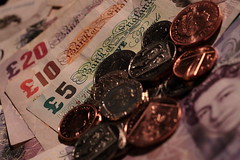
I’ve got to admit I have no idea how much interest my current account pays me, but chances are it’s very little.
Recent research by MoneyFacts has found that nearly half (49%) of current accounts pay absolutely no interest whatsoever. This includes some of the big names in banking – Barclays and HSBC. 83% of non-fee paying current accounts pay less than 0.1% interest.
OK, so current accounts aren’t really meant to pay massive amounts of interest, but as it’s one of the most widely used financial products, there should be some benefit for those managing to keep their accounts in the black.
What makes it more worrying is the fact that one year ago the same research found that 1 in 5 current accounts paid no interest. Of course, the interest rate paid is largely linked to the now historically low Bank of England base rate, but even so, that is still a positive, if low, figure, yet the banks are trying to increase their margins by reducing the cost of these accounts. They’ve also been less keen on reducing the interest they pay on overdrafts, unsurprisingly.
The average credit interest rate is a slightly more encouraging 0.71%, but this average is raised by a couple of high paying big hitters from Alliance & Leicester and Abbey (both, in fact, part of the Santander banking group), currently paying 6% AER.
Although switching current accounts can sound daunting, it needn’t be. We probably think back to the days when everything was done manually and there was quite a lot of running round to organise the switch, but these days it should be more straight forward. The bank you intend to move to will hopefully be more than happy to ensure everything runs smoothly. If you’re going to make the switch, it helps if you have a positive balance each month, and are not eating into your overdraft. If you’re after the 6% that the likes of Abbey and Alliance & Leicester pay, you’ll need to be paying in more than £1,000 per month.
Banking is obviously going through some radical changes at the moment, and the banks are going to be looking to make more money wherever they can – especially if the much delayed bank charge case goes against them and they find themselves paying billions back to customers. Indeed, the result of this case was thought to signal the end of free banking, with a move to the European model of having to pay a monthly/annual fee for the service.
![]() photo credit: a.drian
photo credit: a.drian